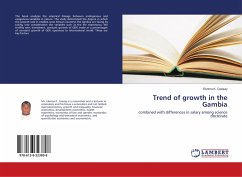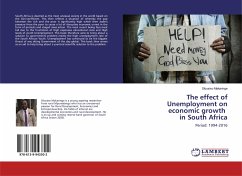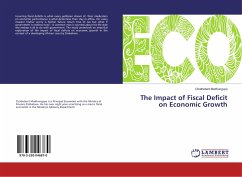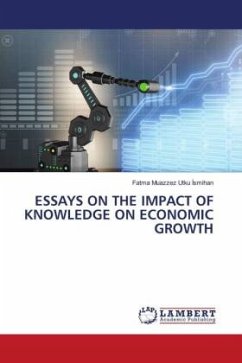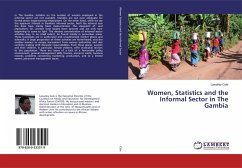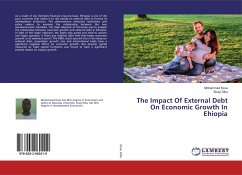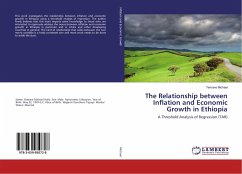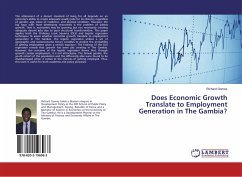
Does Economic Growth Translate to Employment Generation in The Gambia?
Versandkostenfrei!
Versandfertig in 6-10 Tagen
24,99 €
inkl. MwSt.

PAYBACK Punkte
12 °P sammeln!
The attainment of a decent standard of living for all depends on an economy's ability to create adequate quality jobs for its citizenry regardless of gender, age, place of residence, and physical condition. However, the big issue with most developing economies is the problem of jobless growth. That is, economies may be growing but not necessarily creating adequate decent jobs due to poor structural transformation. This paper applies both the Ordinary Least Squares (OLS) and logistic regression techniques to assess whether economic growth translate to employment generation in The Gambia. The lo...
The attainment of a decent standard of living for all depends on an economy's ability to create adequate quality jobs for its citizenry regardless of gender, age, place of residence, and physical condition. However, the big issue with most developing economies is the problem of jobless growth. That is, economies may be growing but not necessarily creating adequate decent jobs due to poor structural transformation. This paper applies both the Ordinary Least Squares (OLS) and logistic regression techniques to assess whether economic growth translate to employment generation in The Gambia. The logistic regression utilizes a set of geographic and socioeconomic binary variables to predict the probability of getting employment given a certain exposure. The findings of the OLS regression reveals that growth has been job creating in The Gambia. However, the outcome of the logistic regression shows that, though growth creates employment, it is not all-inclusive. The female gender, the youth cohort of the population and the differently able were found to be disadvantaged when it comes to the chances of getting employed. Thus, this work is useful for both academia and policy purposes.



